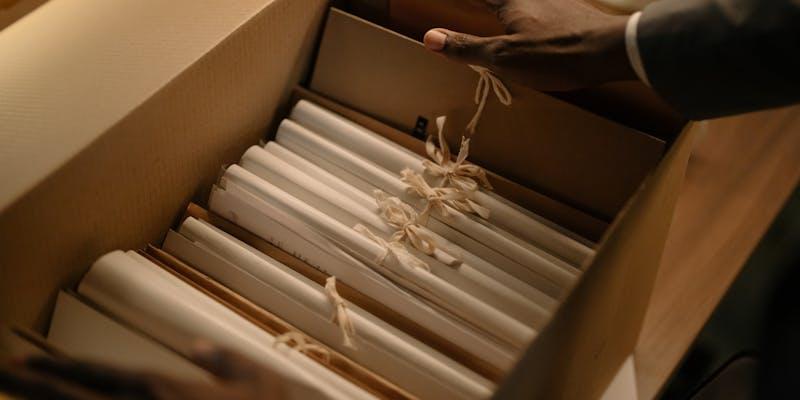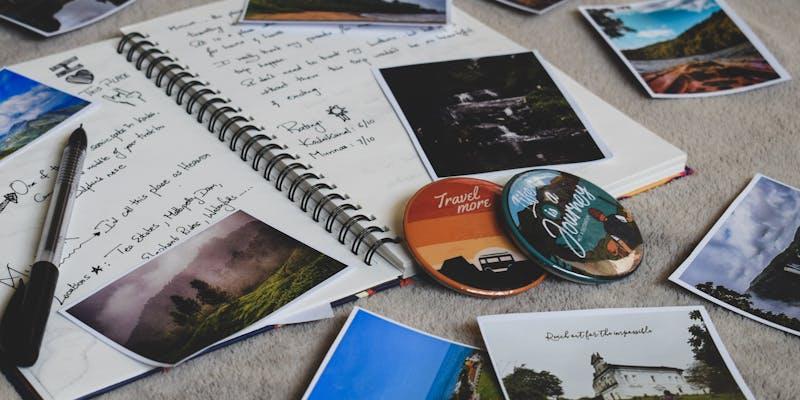Essential Items to Put in Safe Deposit Box and Things to Avoid Storing
Jul 30, 2024 By Triston Martin
Some consider bank safe deposit boxes obsolete. Today, it's so easy to save financial
information and other vital documents digitally that a guarded bank vault is seldom needed. Many banks no longer offer them, and many that do say half or more of their boxes are empty, according to the New York Times.
Safe deposit boxes are still useful compared to safe deposit box alternatives. Even in today's paperless digital age, you may be required to save your birth certificate or house deed. Unfortunately, you cannot digitize precious tangible artifacts like family heirlooms or valuables. A safe deposit box is best for these valuable papers and items. However, only some things you value should be stored with a safe deposit box key.
8 Things to Keep in a Safe Deposit Box

Things that should be stored with a safe deposit box key are mentioned below:
Property Records
You need to handle many documents while buying a house. The property documents may be important to keep in a safe deposit box. Selling a house also requires the deed. It may also be needed to prove ownership. The closing statement and other settlement paperwork indicate your home purchase price, so it must be secured in a deposit box. You'll need this information for taxes, especially when selling the house.
Car Title
Like your home deed, your car title is crucial but rarely needed and difficult to replace if lost. Safe deposit boxes are great for that. You'll know where to find the title when you sell the car: in your bank box, secured with a safe deposit box key.
Important Personal Records
Keep important personal records in your safe deposit box, such as:
- Your or your children's birth certificates
- Adoption records
- Certificate of marriage
- Certificate of divorce
- Spouse or close relative death certificate
SSA Card
Financial experts advise against carrying your Social Security card in your wallet. If your wallet is stolen, your Social Security number puts you in danger of identity theft. You're unlikely to require your Social Security card for ID on any given day.
Various paperwork requires your Social Security number, but you can memorize it. Only for real estate closings or driver's license renewals will you need the card. Your safe deposit box with a cheap, safe deposit box cost is usually the finest place to safeguard it from robbers.
Stock/bond Certificates
Electronic trades are common for buying bonds, equities, and corporate bonds. Digital records of your ownership are saved on a server, so you won't have to be concerned about misplacing or saving them.
Until recently, such purchases came with paper certificates. Kiplinger reports that the New York Stock Exchange required printed certificates for stock purchases until 2001 and that some banks sold paper savings bonds until 2011. You should secure them with a safe deposit box key if needed.
Minor Assets
In addition to documents, your safe deposit box might hold modest, precious objects you don't want at home. Example: jewelry. No matter how valuable, you'll want to preserve jewelry you wear often in a deposit box, like an engagement ring or a pearl necklace you wear to work.
Small collectibles fit in safe deposit boxes. However, antique, ceramic, and rare book collections are too large for safe deposit boxes. Your bank and other safe deposit box alternatives can store and secure smaller objects like stamps, coins, and vintage baseball cards. When you wish to buy or sell something, open the box.
Treasured Memories

Some of your favorite possessions are sentimental but not valuable. Your safe deposit box can store letters from friends and family and old diaries, either yours or a loved one's. You can scan these objects before storing them to have a backup, but nothing beats holding a treasured item. The box can also hold historical family images inside with a safe deposit box key from before modern cameras and online storage. Negatives can be stored in a safe deposit box and original prints in a family album.
Inventory at Home
If you file a house insurance claim after a fire or flood, your insurer will want to know what you lost and its value. However, your memory may not remember everything you own. Insurance companies advocate producing a home insurance inventory, a full record of your goods and their value. Keep the inventory at home secure in a box, knowing the cost of a safe deposit box.
What Not to Keep in Your Safe Deposit Box
Keep these outside your safe deposit box and look for safe deposit box alternatives to secure them:
- Cash: Safe deposit boxes don't have FDIC insurance like bank accounts. An interest-bearing savings account from CIT Bank is better for emergency funds.
- Your Original Will: Many states require banks to seal safe deposit boxes after death. That can cause issues if your will is sealed. To get into the box, your heirs must go through many legal hurdles, potentially even a court order.
- Instructional Letters: Other estate planning papers have the same issues as wills. A letter of instruction, which goes with your will, states your funeral and other requests.
- Power of Attorney: Many people create a POA together with an advance directive. This allows someone to make financial or medical decisions for you if you become disabled.
- Passport: Experts dispute putting your passport in a safe deposit box. It's a document you don't require daily and is hard to replace if lost or stolen, so you need safe deposit box alternatives to keep it secure.
Moreover, another thing to keep outside your safe deposit box is an updated inventory of its contents. If the box is destroyed in a natural catastrophe, you'll know what you lost to replace the papers or make an insurance claim. These lists notify your heirs what's in your safe deposit box if you die.





